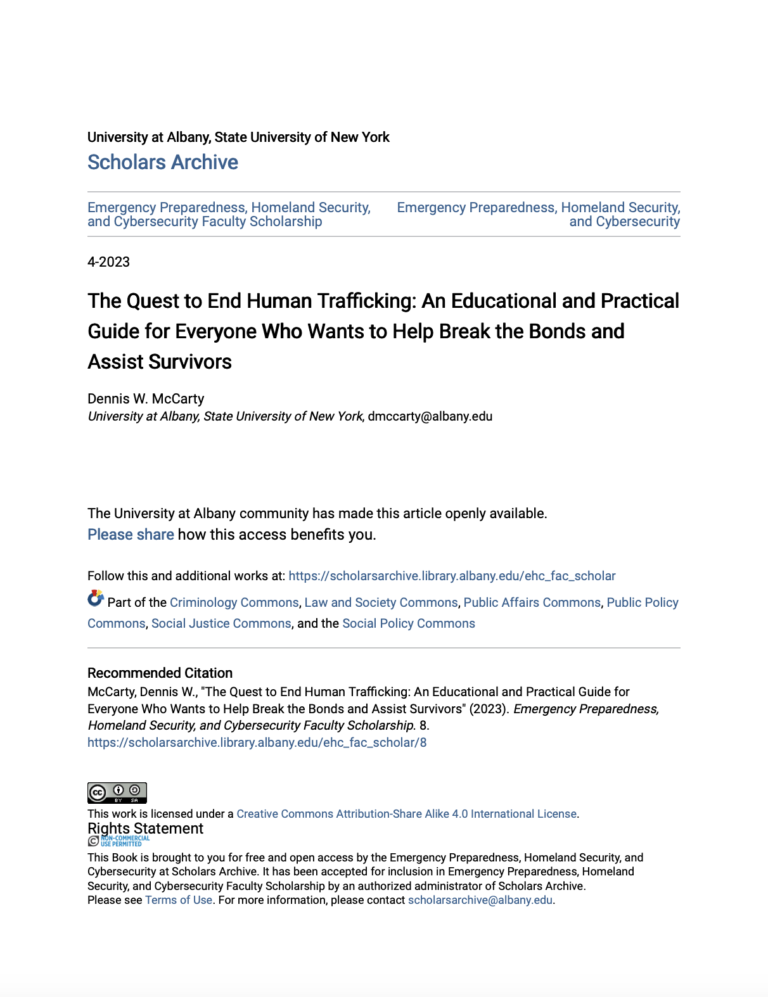People often assume that only legislators and law enforcement personnel can take meaningful steps to fight human trafficking, one of the most lucrative transnational crimes in the world. This inquiry sought to assess the validity of that belief. The study was informed by the author’s experience as a college instructor of human trafficking and the inspiration he drew from the range and quality of his students’ projects.
The methodology included examining the strategies that governmental and non-governmental organizations are using to fight trafficking and assist survivors. It also considered the work of individual activists and service providers such as social workers and health/mental health professionals. Business allies selected for review included convenience store managers and those in the lodging, tourism, airline, and transportation industries. Community influencers such as public officials, members of the press, spiritual leaders, and college instructors were studied as well.
The research demonstrated that each group is making a valuable contribution. The analysis first summarizes major concepts and laws that every antitrafficking activist needs to know. The author then organized the insights and lessons learned into five types of activities: Awareness, political advocacy, prevention, reducing demand (shopping wisely), and survivor intervention/aftercare. A separate discussion focused on ideas for student service projects, internships, and relevant career opportunities.
The concluding chapters offer an easy-to-follow game plan for anyone interested in joining the cause. Altogether, the Guide has more than 1,100 hyperlinks to articles and free resources that advocates can use to pursue their personal antitrafficking interests and priorities.

